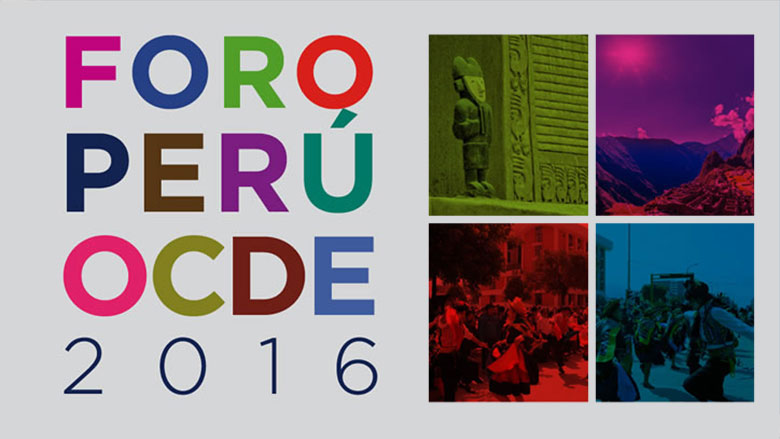The conference will cover the following topics: economic growth and equal opportunities, education and skills, integrity, transparency and modernization of the public sector.
----------

The conference will cover the following topics: economic growth and equal opportunities, education and skills, integrity, transparency and modernization of the public sector.
----------
Friday, October 14th, 2016 |
|
|
|
9:00 – 9:45 |
OPENING: Peru and the OECD: A Mutually Beneficial Relationship |
Welcome by Fernando D’Alessio – General Director, CENTRUM Católica Dialogue:
Moderated by:
|
|
9:45 - 11:00 |
Session 1: Economic growth, reduction of the poverty and equal opportunities |
The country has registered strong economic growth since the beginning of the 21st century, which has resulted in a notable reduction of poverty from nearly 45% in 2004 to 20% in 2014. Although major inequalities still exist, related not only to income, but also to different dimensions of well-being, these too have dramatically reduced. In order to confront the “middle income trap” and to strengthen the emergent middle class, Peru will have to stimulate its productivity and economic diversification, promote formal employment, and provide better public services, such in improved connectivity of transport. Moderated by: Fernando D’Alessio - General Director, CENTRUM Católica
|
|
|
|
11:30 - 12:45 |
Session 2: A Modern State that promotes integrity in the public sector |
A Modern State is one that works efficiently and effectively to promote the ethics and the integrity of the public sector. To this end, it is essential to strengthen the country’s legal and institutional framework, the use of accountability mechanisms, and to promote a culture of integrity and transparency such that cases of corruption are not only punished, but also prevented. To continue developing into a Modern State, Peru must define and implement instruments that guarantee public ethics in managing conflicts of interest, internal control, lobbying, and intergovernmental and interregional coordination. Moderated by: María del Carmen Sacasa, United Nations Resident Coordinator Representative, UNDP resident
|
|
|
|
14:30 – 15:45
|
Session 3: Education and skills as central pillars of economic and social development of Peru |
Education and the creation of professional skills are central pillars for economic and social development of any country, and they certainly are in the case of Peru. A good education is essential-- not only for the acquisition of cognitive skills, but also for non-cognitive skills (such as the ability to learn, motivation, and perseverance). Both types of skills are critical for the development of individuals within a society and their future participation in the labor market. As such, it is essential to improve the quality of education and the development, application, and use of skills in order to deal with major economic and social challenges facing Peru, such as low productivity, lack of opportunities, and youth unemployment. Moderated by: Beatrice Avolio, Deputy General Director, CENTRUM Católica
|
|
|
|
16:00 - 17:15 |
Session 4: A Modern State that is closer to its citizens |
A public sector that is more participative, transparent, open, efficient and effective is essential to successfully address the needs of its citizens. To achieve this goal poses significant challenges in terms of public governance. Likewise, it requires coordinated effort among the State and civil society to define, implement, and measure the performance of public policies that support inclusive growth and directly targets the economic and socio-demographic challenges facing Peruvian society. Moderated by: Irene Horejs, Ambassador of the European Union in Peru
|
|
17:15 – 18:00 |
CLOSING |
Dialogue:
Moderated by: Javier Iguiñiz, Executive Secretary, Acuerdo Nacional
|
|
Last Updated: Oct 14, 2016